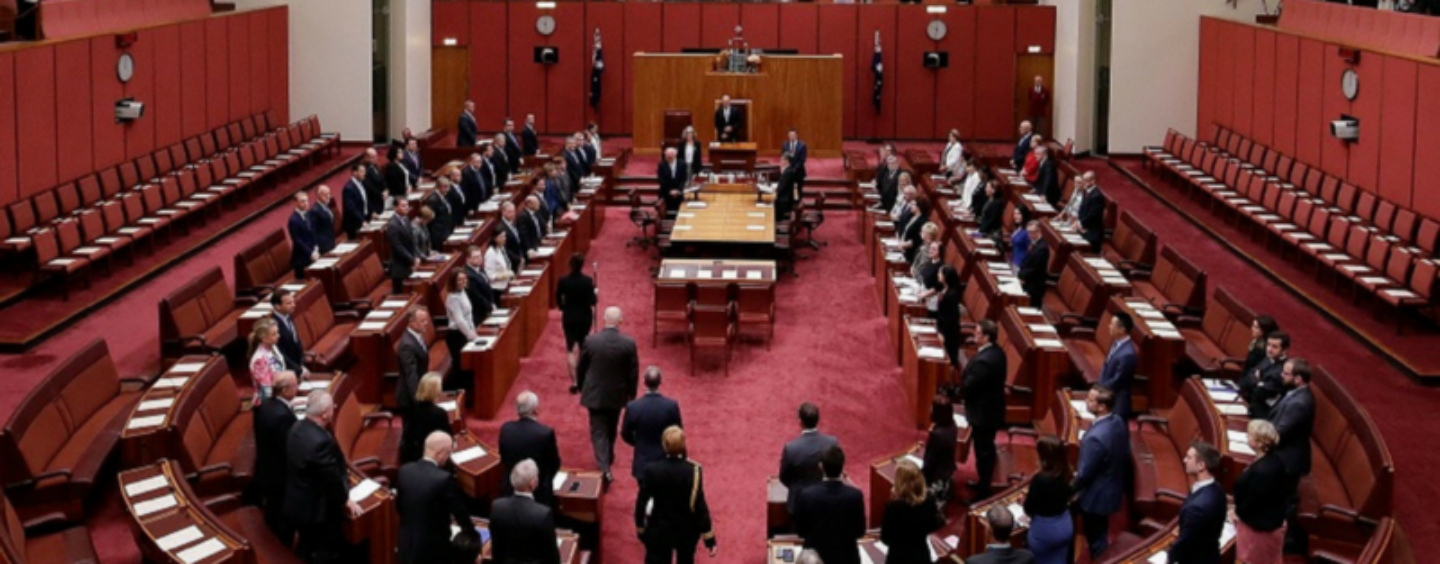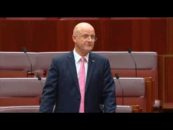The Turnbull Government has abandoned Abbott-era policies to cut government spending on welfare, health and education. These were the so-called “zombie” measures that had been lurking in budget papers since 2014 but not legislated.
Supposedly the Senate was to blame for these measures not being passed into law. The Government says we would be on a credible path to surplus if it wasn’t for the Senate, and that now the only way to boost the budget is to increase taxes on banks, foreign skilled workers, smokers, and workers who pay the Medicare levy.
If the abandoned zombie measures had been legislated, Government spending would have been reduced by almost $15 billion over the next four years. In the context of the current annual deficit of $38 billion, that would have been helpful but not transformative.
The problem with the Government’s claim of Senate obstruction is that most of the abandoned zombie measures — more than $13 billion of prospective spending cuts — were never debated or voted on in the Senate.
The measures actually knocked back by the Senate account for little more than $1 billion of them. Furthermore, these knock-backs occurred in the previous Senate; the Government has never bothered to put any of the measures to the Senate elected last year.
It’s probably unlikely the Government would have succeeded in having all of the abandoned zombie measures passed if it had presented them to the Senate, but I suspect it could have won a few had it gone about it the right way. And I am sure it would have had some success if it had tried again with the new Senate.
In the previous Senate the Government required the support of six of the eight crossbenchers to achieve a majority. That is, it could only afford to have two crossbenchers vote with Labor and the Greens. But with none of the crossbenchers permanently aligned with Labor or the Greens, and only Bob Day aligned with the Government, we were all open to persuasion.
This was shown by the fact that the Senate voted to repeal the carbon tax and mining tax, to limit eligibility for the seniors’ health card, and to reintroduce temporary protection visas. I’m not suggesting it was easy, but it got there.
More might have followed if relations between the Government and crossbench had built on that success. But Tony Abbott was remote and rarely dealt directly with the crossbench, relationships remained largely transactional, and successful ministers never seemed to share their knowledge with their colleagues, leaving other ministers to blunder in and make mistakes.
A prime example was seen with negotiations over the bill to re-establish the Australian Building and Construction Commission. Glenn Lazarus and Jackie Lambie were opposed and apparently not for turning, but Ricky Muir wanted to vote for the bill if he could find a way to justify it to his union friends. Dio Wang and John Madigan wanted something done about corruption outside the building industry as well as inside it. Nick Xenophon and I both said we’d support it subject to amendments, and Bob Day supported the bill.
But Muir’s concerns went unanswered, and a motion to establish an inquiry into a federal anti-corruption body was opposed by the Government. As a result Muir, Wang and Madigan voted against the bill and it was lost. It was a failure of Negotiations 101.
In the new Senate, the Government needs 10 of the 12 crossbenchers (including Cory Bernardi) to reach a majority. It can still only afford to have two crossbenchers voting with Labor and the Greens and yet, despite Jackie Lambie now firmly aligned with Labor, the ABCC bill, Registered Organisations, plus tax cuts for small business have all passed.
This is not due to a sudden improvement in Government negotiation skills, but because Senate dynamics have changed. Labor and the Greens regularly abuse Pauline Hanson and her team, for example, making it more likely they will vote with the Government notwithstanding policy similarities. And diversity within Nick Xenophon’s group is making it less inclined to vote with the Greens.
If the Government had also improved its negotiation skills, who knows how many of the abandoned zombie measures might now be passed?
As it happens, not all prior measures were abandoned. The policy to remove an energy supplement for new recipients of income support, announced in Treasurer Scott Morrison’s first budget, remains on the books. The 2014 policy to lift the pension age to 70 also remains, as does the policy to reduce the company tax rate to 25 per cent for all companies, even though the Senate recently baulked at this. The Government’s abandonment of some zombie measures, and retention of others, is really more about its changed attitude towards some of its own measures rather than anything to do with the Senate.
Indeed, it is dishonest to argue that the reason for bringing down a budget that Labor would be proud of is because of Senate obstruction.
Even if the Government had a majority in the Senate, I suspect the budget would have been no different. With debt and deficits to continue long into the future, it was a budget aimed at political survival rather than the good of the country.
by David Leyonhjelm
Originally published in The Australian on 2nd June 2017









